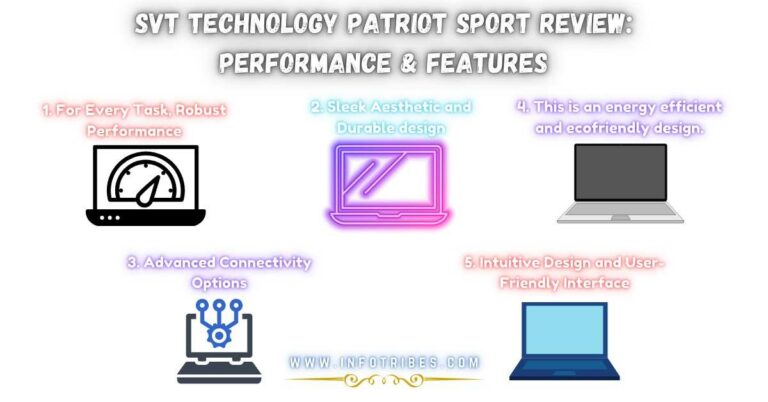Top 10 Cybersecurity Certifications Worth Getting in 2025
Introduction
In 2025, cybersecurity continues to be one of the fastest-growing and most essential fields in technology. With the rise of AI-driven attacks, ransomware 3.0, quantum computing threats, and sophisticated social engineering, organizations worldwide are investing heavily in protecting their digital assets. For IT professionals, this means there’s never been a better time to upskill and validate expertise with the right certifications.
But with so many credentials available, which ones are truly worth your time and money? In this detailed guide, we explore the Top 10 Cybersecurity Certifications Worth Getting in 2025. Whether you’re a beginner, intermediate, or seasoned professional, these certifications can help you boost your career, command higher salaries, and stay competitive in the evolving job market.
Tesla Phone Review: Can It Compete With Apple and Samsung?
Why Cybersecurity Certifications Matter in 2025
Before diving into the list, let’s address the importance of certifications:
- Industry Recognition – Certifications validate your knowledge and set you apart from non-certified peers.
- Higher Salaries – Certified professionals often earn significantly more. According to ISC², cybersecurity-certified individuals can earn up to 30% more than their non-certified counterparts.
- Career Advancement – Whether you want to become a penetration tester, SOC analyst, or CISO, certifications open doors.
- Keeping Skills Updated – Many certifications require continuing education, ensuring you remain up-to-date with the latest threats.
In short, certifications are more than just badges – they’re career investments.
Google Cybersecurity Certificate
1. Certified Information Systems Security Professional (CISSP)
The CISSP remains one of the most respected certifications in cybersecurity. Offered by ISC², it covers everything from security governance to risk management and network defense.
- Why it’s one of the Cybersecurity Certifications Worth Getting: CISSP is often a requirement for senior-level security roles.
- Ideal For: Mid-to-senior-level professionals, security managers, and aspiring CISOs.
- Cost: Around $749 exam fee.
- Average Salary Impact: Professionals with CISSP can earn over $130,000 annually.
2. Certified Ethical Hacker (CEH)
The CEH by EC-Council is perfect for those who want to think like hackers to protect systems. It teaches penetration testing, vulnerability assessment, and advanced hacking techniques.
- Why it’s one of the Cybersecurity Certifications Worth Getting: Ethical hacking skills are in massive demand as companies invest in penetration testing.
- Ideal For: Penetration testers, red team members, and security analysts.
- Cost: $1,199 exam fee.
- Average Salary Impact: CEH holders typically earn between $100,000–$120,000 annually.
3. CompTIA Security+
Security+ is an entry-level certification that covers the fundamentals of network security, compliance, and threats.
- Why it’s one of the Cybersecurity Certifications Worth Getting: It’s an excellent starting point for beginners entering cybersecurity.
- Ideal For: IT professionals transitioning to cybersecurity, students, and newcomers.
- Cost: $404 exam fee.
- Average Salary Impact: Security+ holders can expect to start around $70,000–$85,000.
4. Certified Cloud Security Professional (CCSP)
With cloud adoption skyrocketing, securing cloud environments is more critical than ever. The CCSP, also offered by ISC², is the gold standard for cloud security.
- Why it’s one of the Cybersecurity Certifications Worth Getting: Companies increasingly need cloud security experts as they migrate to AWS, Azure, and Google Cloud.
- Ideal For: Cloud architects, security administrators, and consultants.
- Cost: $599 exam fee.
- Average Salary Impact: CCSP professionals earn around $120,000–$135,000 annually.
5. Offensive Security Certified Professional (OSCP)
OSCP by Offensive Security is known as one of the toughest certifications, focusing on real-world penetration testing. Candidates must exploit systems in a hands-on lab environment.
- Why it’s one of the Cybersecurity Certifications Worth Getting: OSCP proves you have practical, hands-on hacking skills that employers highly value.
- Ideal For: Penetration testers, red teamers, and advanced ethical hackers.
- Cost: $1,499 (including lab access).
- Average Salary Impact: OSCP holders often earn $110,000–$140,000+.
6. GIAC Security Essentials (GSEC)
The GSEC by the Global Information Assurance Certification (GIAC) validates a broad range of cybersecurity skills, from cryptography to defense-in-depth strategies.
- Why it’s one of the Cybersecurity Certifications Worth Getting: It’s highly respected, especially in government and defense sectors.
- Ideal For: Security professionals, network administrators, and defense contractors.
- Cost: $2,499 (includes course and exam).
- Average Salary Impact: Holders can command salaries around $95,000–$125,000.
7. Certified Information Security Manager (CISM)
The CISM certification, offered by ISACA, focuses on information security governance, risk management, and compliance.
- Why it’s one of the Cybersecurity Certifications Worth Getting: It’s highly valuable for management and leadership roles in cybersecurity.
- Ideal For: Security managers, risk consultants, and aspiring CISOs.
- Cost: $760 exam fee.
- Average Salary Impact: CISM holders can earn up to $150,000+.
8. Certified Information Systems Auditor (CISA)
Also offered by ISACA, the CISA is designed for professionals focusing on auditing, control, and assurance.
- Why it’s one of the Cybersecurity Certifications Worth Getting: Organizations need professionals to ensure compliance and prevent costly security breaches.
- Ideal For: Auditors, compliance officers, and risk managers.
- Cost: $575 exam fee.
- Average Salary Impact: Around $95,000–$120,000 annually.
9. CompTIA Advanced Security Practitioner (CASP+)
The CASP+ certification is designed for advanced security professionals who want to go beyond Security+.
- Why it’s one of the Cybersecurity Certifications Worth Getting: It validates advanced technical skills and enterprise-level security knowledge.
- Ideal For: Experienced security engineers, SOC analysts, and technical leads.
- Cost: $494 exam fee.
- Average Salary Impact: CASP+ holders typically earn $95,000–$125,000.
10. NIST Cybersecurity Framework (NCF) Certification
In 2025, frameworks like NIST are critical for regulatory compliance and best practices. This certification demonstrates expertise in applying the NIST Cybersecurity Framework.
- Why it’s one of the Cybersecurity Certifications Worth Getting: Compliance and regulation are increasingly important, especially in finance, healthcare, and government.
- Ideal For: Compliance officers, auditors, and cybersecurity managers.
- Cost: Varies depending on provider.
- Average Salary Impact: Around $100,000–$130,000 annually.
How to Choose the Right Cybersecurity Certification for You
Not all certifications are equal – the right one depends on your career stage and goals.
- Beginners: Start with CompTIA Security+ or GSEC.
- Intermediate Professionals: Go for CEH, CCSP, or CASP+.
- Advanced Professionals: Consider CISSP, OSCP, CISM, or NIST frameworks.
Also, consider your specialization – penetration testing, management, compliance, or cloud security.
The Future of Cybersecurity Certifications in 2025 and Beyond
With AI, IoT, and quantum computing shaping the cybersecurity landscape, certifications will evolve too. Expect new credentials focused on:
- AI-driven threat detection
- Quantum-resistant encryption
- IoT and smart device security
- Cyber-physical systems protection
Staying ahead with the right certifications ensures long-term career stability.
Best Gaming Keyboards of 2025: Full Buyer’s Guide
FAQs on Cybersecurity Certifications Worth Getting
Q1. Are cybersecurity certifications still worth it in 2025?
Yes. With cyber threats growing, certifications remain essential for career growth, higher salaries, and job security.
Q2. Which cybersecurity certification should beginners start with?
CompTIA Security+ is the best starting point for beginners entering cybersecurity.
Q3. Which certification is the hardest to get?
The OSCP is widely considered one of the most challenging due to its hands-on exam.
Q4. Do employers prefer CISSP or CEH?
It depends. CISSP is preferred for management roles, while CEH is more suited for ethical hackers and penetration testers.
Q5. How much can I earn with a cybersecurity certification?
On average, certified professionals earn 20–30% more, with many salaries ranging from $80,000 to over $150,000 annually.
Q6. How long does it take to prepare for CISSP?
Typically 4–6 months of dedicated study is recommended for CISSP preparation.
Q7. Will AI and automation reduce the need for certifications?
No. While AI will assist in detection and defense, human expertise and certified professionals will remain critical.







